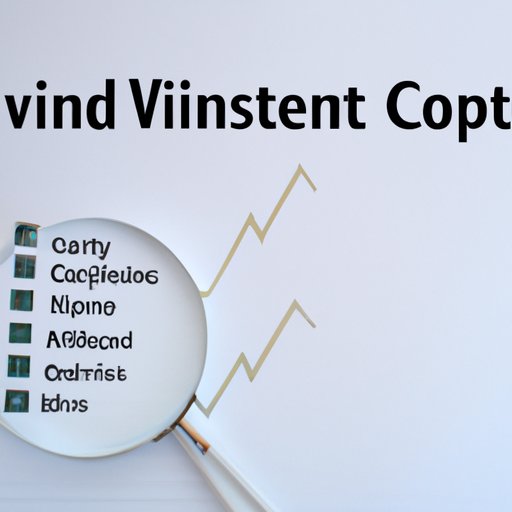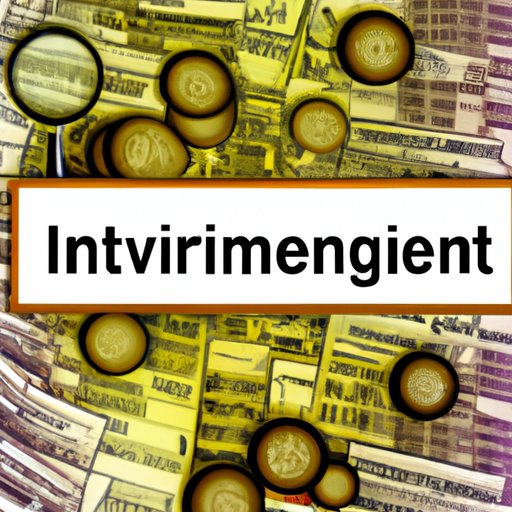Introduction
Investing in commodities has become increasingly popular over the past few years as investors seek to diversify their portfolios and capitalize on potential returns. But what exactly is a commodity, and what makes them a good investment? In this article, we’ll explore the basics of investing in commodities and provide a comprehensive guide on which commodities are currently the best investments.
Definition of Commodities
A commodity is a basic good used in commerce that is interchangeable with other goods of the same type. Commodities are most often used as inputs in the production of other goods or services. Examples of commodities include grains, oil, metals such as gold and silver, and agricultural products such as coffee and sugar.

Overview of the Current Commodity Market
The commodity market is a global marketplace for buying, selling, and trading raw or primary products. Commodities are traded on regulated exchanges, in which participants are able to buy and sell standardized contracts that specify the quality and quantity of the underlying commodity. Commodity prices are influenced by supply and demand, as well as by political and economic events.
Analyzing the Current Commodity Market: What is a Good Investment?
When evaluating any investment opportunity, there are several key factors to consider. These factors include the level of risk associated with the investment, the potential returns, and the liquidity of the investment. When it comes to investing in commodities, investors must also take into account the volatility of the commodity prices and the cost of trading.

Benefits of Investing in Commodities
Investing in commodities provides investors with several potential benefits. First, commodities offer a way to diversify a portfolio, as they tend to move independently from stocks and bonds. Second, commodities can potentially provide strong returns in a short period of time. Finally, commodities can provide protection against inflation, as commodity prices tend to rise when inflation increases.
Risks Associated with Commodity Investments
Like any investment, there are risks associated with investing in commodities. The most significant risk is the volatility of commodity prices, which can result in large losses if not managed properly. Additionally, some commodities are subject to speculation, which can lead to price manipulation and increased risk. Lastly, trading costs can be high, making it difficult to generate a profit.
Diversifying Your Portfolio with Commodity Investments: What to Look For?
When looking to diversify your portfolio with commodity investments, there are several different types to consider. These include energy commodities such as oil and natural gas, precious metals such as gold and silver, and agricultural commodities such as corn and wheat. Each type of commodity has its own pros and cons, so it’s important to research each one before investing.
Understanding the Basics of Investing in Commodities
Before investing in any commodity, it’s important to understand the basics of investing in commodities. This includes understanding how to read and interpret commodity charts, understanding the different types of orders available (such as limit orders and stop orders), and the various strategies that can be used to maximize returns (such as technical analysis and fundamental analysis).
Examining the Top Commodity Investments: What Should You Choose?
When selecting which commodities to invest in, it’s important to consider both potential returns and diversification benefits. Popular commodity investments include gold, silver, oil, and natural gas, but there are many other commodities to choose from. It’s important to research each commodity before investing, as some may offer higher returns than others.

Finding the Best Commodities to Invest In: How to Research and Evaluate Options
Once you’ve identified potential commodities to invest in, it’s important to analyze market trends, examine risk/reward ratios, and utilize professional resources to determine which are the best investments. Additionally, it’s important to monitor the markets regularly to ensure that you remain informed of any changes or developments that could affect your investments.
Conclusion
In conclusion, investing in commodities can be a great way to diversify your portfolio and capitalize on potential returns. When selecting which commodities to invest in, it’s important to consider both potential returns and diversification benefits. Additionally, it’s important to research the markets and use professional resources to determine which are the best investments. With the right approach, commodities can be an excellent addition to your portfolio.
(Note: Is this article not meeting your expectations? Do you have knowledge or insights to share? Unlock new opportunities and expand your reach by joining our authors team. Click Registration to join us and share your expertise with our readers.)
